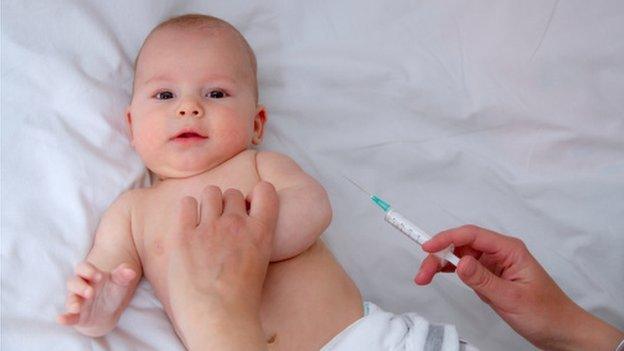Meningitis B vaccinations start across UK for all newborns
- Published
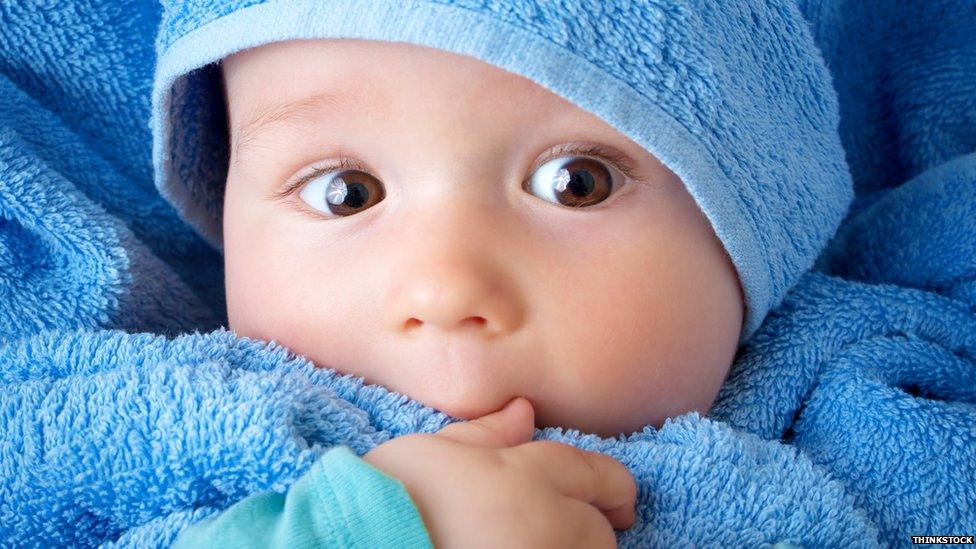
A new programme to vaccinate all newborn babies against meningitis B has started in the UK - the first scheme of its kind in the world.
The Men B vaccine will be given to babies at two, four and 12 months old as part of routine immunisations.
Infants aged under one are at the most risk of meningitis B infection, which is fatal in one in 10 cases.
Campaigners said it could prevent up to 4,000 cases by 2025, but warned parents should be aware of meningitis symptoms.
A catch-up programme will also target babies born since May who have missed the first jabs.
The scheme, which has been delayed by cost disputes, is the first national and publicly-funded programme against the deadly infection in the world.
Babies already receive a meningitis C vaccination when three months old, with a booster at 12 months.
Students are also offered a combined vaccine giving protection against four strains of the disease, meningococcal A, C, W and Y.
Daniel Wells, who has had the disease twice, says it is a relief that his baby daughter will be immunised
There are hundreds of strains of meningococcal group B bacteria. Trials suggest that the vaccine would be effective against 88% of them.
Dr Mary Ramsay, the head of immunisation at Public Health England, said: "This vaccine will help to save lives and prevent permanent disability."

What is meningitis?
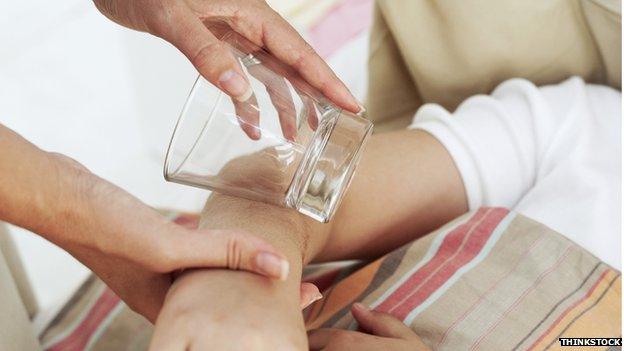
Meningitis is an infection of the meninges - the membrane that surrounds the brain and spinal cord
Meningococcal bacteria are common and carried harmlessly in the nose or throat by about one in 10 people
They are passed on through close contact
Anyone can get meningitis but babies and young children are most vulnerable
Symptoms include a high fever with cold hands and feet, agitation, confusion, vomiting and headaches

Christopher Head, from the Meningitis Research Foundation, added: "Over the next decade this vaccine could potentially prevent up to 4,000 cases of meningococcal disease in children younger than five years in the UK.
"However despite this welcome progress we must remind everyone there are still some forms of the disease which are not covered by vaccines so it is vital that people are still aware of the symptoms of meningitis and septicaemia."
'Massive step forward'
Sue Davie, chief executive of the charity Meningitis Now, said the move was a "massive step forward against meningitis".
But she said: "It doesn't cover all forms of meningitis so we still need to say to people, stay vigilant, know the signs, take action if you suspect it.
"But this is a massive step forward for us, it's fantastic."
Dr Shamez Ladhani, from Public Health England, said the vaccination programme will "save a lot of lives" and "a lot of children from very severe long-term complications".
Scottish Health Secretary Shona Robison said: "The Scottish Government has been consistent in its support for the introduction of this vaccine, which underlines our commitment to ensuring the health and wellbeing of our children.
"The programme will offer families in Scotland extra peace of mind at what should be a such a happy time in their lives."
Signs of infection include a fever with cold hands and feet, agitation, confusion, vomiting and headaches.
Children can also be floppy and sometimes develop a red rash that does not fade when a glass is rolled over it.
Health experts said parents should use liquid paracetamol after vaccination to reduce the risk of a fever - which is generally mild and lasts up to two days.
- Published1 September 2015
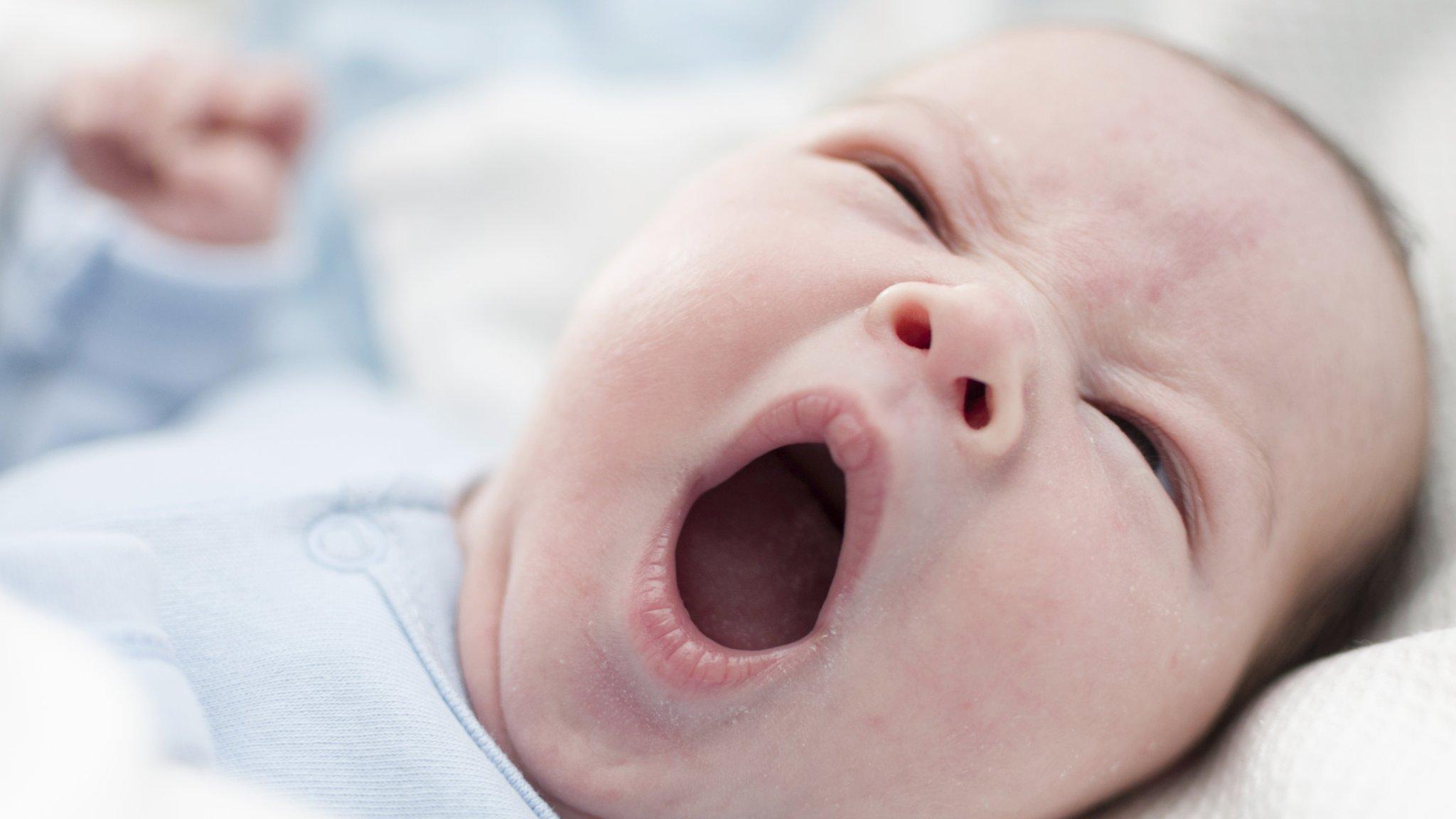
- Published1 September 2015
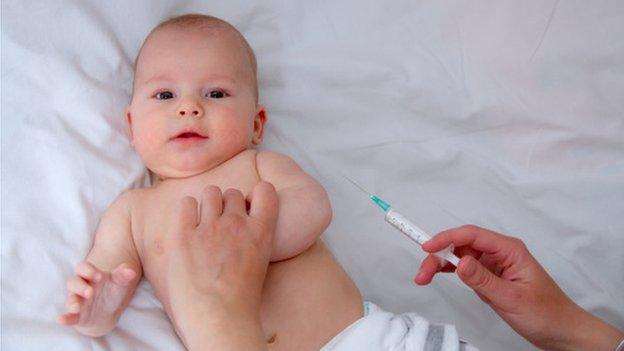
- Published18 February 2016
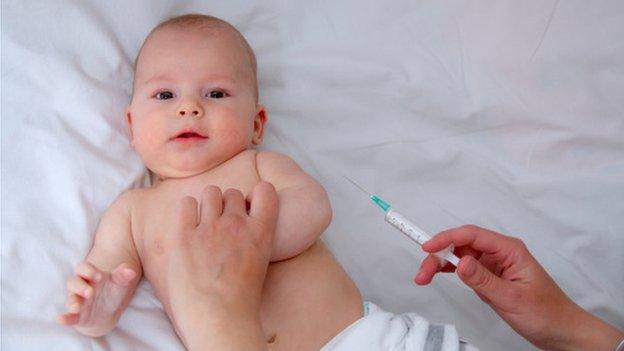
- Published21 June 2015
